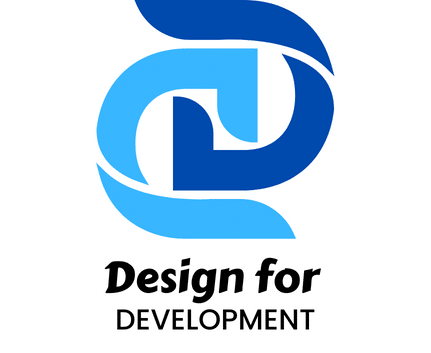Your go-to source for the latest automobile news
Looking for the freshest insights into the automotive world? Discover the latest automotive news, key trends shaping the future of cars, and highlights from recent auto shows and events. Whether you're interested in new car releases, detailed reviews, or cutting-edge car technologies, we've got you covered. Explore market insights, financial analysis, and practical tips for car owners—all in one comprehensive source. Stay ahead in the fast-paced world of automobiles!
Latest automotive news and trends
The automotive landscape is constantly evolving, with Mercedes making headlines by introducing a new platform aimed at enhancing their 'core luxury' electric vehicles (EVs). This move is set to distinguish their high-end EVs in a competitive market. Meanwhile, AURES Holdings has achieved a significant milestone by selling over 35,000 vehicles from January to April 2024, marking a record performance since its inception in 1992.
In parallel : What is web hosting ?
Key trends shaping the future of cars
One of the most transformative trends in the automotive industry is the rise of the Software-Defined Vehicle. This paradigm shift is turning cars into computers on wheels, emphasizing software over hardware. The technology is covered extensively by Automotive News Europe, highlighting its potential to revolutionize vehicle functionality and user experience. Additionally, Toyota Europe is making strides in zero emissions technologies, focusing on future hydrogen vehicles and sustainable materials engineering.
Highlights from recent auto shows and events
Recent auto shows have showcased several exciting developments. The Volkswagen Golf facelift features significant interior upgrades and a new base four-cylinder engine, while the MG HS enters its second generation with a redesigned interior and advanced technology. The VW Transporter was unveiled as a plug-in hybrid electric vehicle (PHEV), electric vehicle (EV), and diesel variant, offering a range of options for consumers.
Additional reading : How Are Mobile Apps Transforming Local UK Food Markets?
The BMW Z4 continues to impress with its traditional front-engine, rear-drive setup, though it may not appeal to fans of the Porsche 718 Boxster. Meanwhile, the Renault Captur is praised for its efficient hybrid engine and impressive active safety features.
Innovations and future directions
The automotive industry is also seeing significant innovation in materials and design. Aluminum is being increasingly utilized to enhance the range and affordability of electric vehicles by reducing vehicle weight. Additionally, Ford is considering developing a hybrid hypercar to rival Ferrari, aiming for endurance racing success with a potential GT40 successor.
In conclusion, the automotive industry is on the brink of numerous exciting changes, driven by advancements in technology and a commitment to sustainability. From software-defined vehicles to innovative materials and new model releases, the future of cars promises to be both dynamic and transformative.
New car releases and reviews
The latest lineup of new car releases brings a mix of innovation and performance. The Audi A6 Performance and S6 have been upgraded, boasting 362bhp and 543bhp respectively, marking a significant leap in power. The MG HS has entered its second generation, featuring a redesigned interior and advanced technology that enhances the driving experience. Meanwhile, the Volkswagen Golf facelift offers substantial interior upgrades and introduces a new base four-cylinder engine, making it a more compelling choice for buyers.
Comparative analysis of different car brands
When it comes to car brand comparisons, the Mercedes EQS stands out for its luxury and quietness, although it doesn't quite match up to some of its German rivals in certain aspects. On the other hand, the Renault Captur is lauded for its efficient hybrid engine and impressive active safety features, making it a strong contender in the compact SUV market. The BMW Z4 continues to captivate enthusiasts with its traditional front-engine, rear-drive setup, though it may not appeal to fans of the Porsche 718 Boxster due to different driving dynamics.
Insights into luxury and sports cars
In the realm of luxury cars, the Volkswagen ID. Buzz emerges as one of Volkswagen's most compelling electric offerings to date. It combines retro styling with modern electric vehicle (EV) technology. Additionally, Ford is contemplating the development of a hybrid hypercar to rival Ferrari, potentially reviving the legendary GT40 for endurance racing. This move could redefine the landscape of sports cars, blending high performance with advanced hybrid technology. You could visit https://www.26-auto.com/ for more information and comprehensive reviews.
Technological advancements in the auto industry
The automotive industry is experiencing a wave of technological advancements, with a significant focus on electric vehicles (EVs). Mercedes is at the forefront, introducing a new platform designed to enhance their 'core luxury' EVs, distinguishing them in a competitive market. This platform aims to improve performance, range, and overall user experience, setting a new standard for high-end electric vehicles.
The rise of autonomous cars and their impact
Autonomous cars are another major technological leap, promising to revolutionize the way we travel. These vehicles, equipped with advanced sensors and AI-driven software, can navigate and make decisions with minimal human intervention. The potential benefits include increased safety, reduced traffic congestion, and enhanced mobility for individuals unable to drive. However, the widespread adoption of autonomous cars also raises questions about regulatory frameworks, cybersecurity, and the future of driving-related jobs.
Future designs and green car technologies
Future car designs are increasingly influenced by the need for sustainability and efficiency. Automakers are investing in green car innovations, such as hydrogen fuel cells and sustainable materials. Toyota Europe is notably advancing in zero emissions technologies, focusing on hydrogen vehicles and engineering sustainable materials. Additionally, the use of aluminum is becoming more prevalent to reduce vehicle weight and improve the range and affordability of EVs.
These advancements underscore a broader shift towards more sustainable, efficient, and intelligent vehicles, promising a transformative impact on the automotive industry and beyond.
